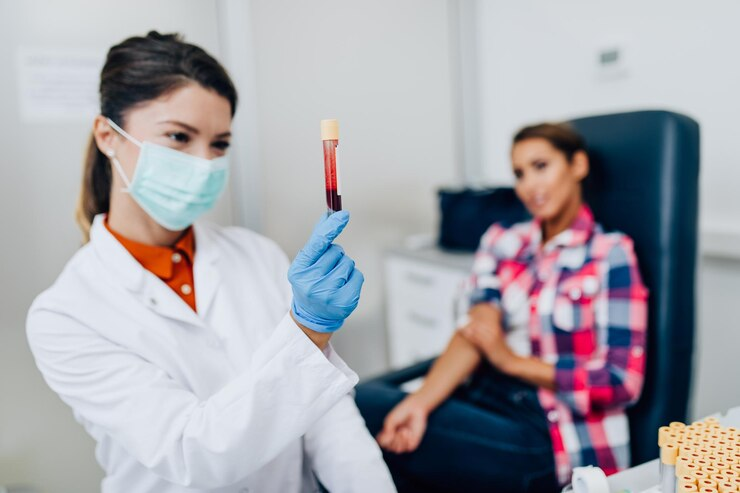What causes syphilis in the mouth?



Although rarely occurring, syphilitic infections have been on the rise for the past few years. Globally, yearly cases of syphilis are estimated to be more than 12 million. Syphilis is categorized as a sexually transmitted disease that spreads from an infected person through vaginal, anal, or oral sex. A bacteria known as Treponema pallidum is responsible for the syphilitic infection that initially results in painless sores and ulcers.
A chancre in the mouth is typical of syphilis. Oral syphilis is a bacterial infection in which the bacteria Treponema pallidum enters your body through unprotected sexual activity with a person having syphilis.
Mild or small cuts or sores on the mucosa of your mouth, vagina, penis, or anus carry the risk of catching syphilitic infection when you have unprotected sex with a person infected with syphilis. Sexual activities such as kissing can also make you acquire syphilis if you have a minor cut in your mouth through which the bacteria can enter your bloodstream.
Read more: Can you get syphilis from kissing?
The initial infection of syphilis is characterized by a painless, small ulcer or sore that is clinically termed a chancre. When the bacteria first enter your bloodstream through a cut in your mouth during sexual activities like kissing, primary syphilis manifests in the form of a chancre in the mouth. The sore may form on any region of your oral mucosa, such as the tongue, lips, corners of the lips, gums, palate, and buccal mucosa.
Secondary syphilis in the mouth results in bump-like rashes on the mucosa and the skin in different parts of the body. In the mouth, the rashes may turn pinkish or greyish-white in colour with the destruction of the mucosal surface layer. Condyloma lata is a typical feature of secondary oral syphilis in which you may have raised greyish-white papules in the oral mucosa or skin of the armpits and groin area.
Untreated oral syphilis may enter the tertiary stage, wherein vital organs are affected. Inflamed and ulcerated lesions known as Gumma are typical during this stage. Gummas are often found in the mouth on the tongue or palate area.
Clinical manifestations of syphilis may be best explained in stages. The different stages of syphilis are characterized by specific signs and symptoms that may or may not overlap.
A painless small ulcer or sore called a 'chancre' (pronounced: Shang-Kur) is typical of primary syphilis. A chancre usually occurs at the site of entry of the infection, i.e., in the mouth or the genital mucosa. Although syphilis may manifest itself with a single chancre that gradually grows larger before remitting on its own, in some cases, a person may have several sores during the primary stage itself. These sores are painless and feel smooth and hard to touch.
Syphilis usually has an incubation period of 2 to 3 weeks that may extend to three months for some people. The incubation period is the period between initial exposure to infection and the manifestation of signs and symptoms of a particular infection. The painless nature of a syphilitic sore often results in several undiagnosed cases. That being said, treatment during the primary stage is essential even though the sore may go away on its own within three to six weeks, you still carry the risk of the infection progressing to its second stage.
The initial stage progresses into secondary syphilis within six months. The sores may become larger as your infection progresses. They gradually turn into rashes that spread all over your body, majorly on your torso, palms, and the soles of your feet. You may also experience grey or whitish wart-like sores around your penis, vagina, or anus. During secondary syphilis, the infection is highly communicable and can spread from an infected person to a healthy individual through unprotected sexual activity.
Other symptoms of secondary syphilis include fever, muscle pain, headache, swollen lymph nodes, and nasal discharge.
If your syphilis has not been treated during the first two stages, it often moves on to an asymptomatic latent stage. Usually, your body will not show any signs or symptoms during this stage which can last for years. You may not spread syphilis to another individual during the latent stage but the infection does continue to damage your vital organs and occasionally may manifest in the form of flare-ups.
This is a much more serious form of syphilis infection. A small percentage of persons who do not receive treatment enter the tertiary stage of syphilis which affects vital organs and organ systems. It manifests in cardiovascular and neurological symptoms. Brain disease, muscle damage, heart disease like angina, neurological disorders such as seizures, paraesthesia, and personality disorders are some of the complications associated with Syphilis.
Read more: What causes syphilis in men?
Congenital syphilis occurs when you have syphilis during pregnancy and the infection is passed on to the developing baby in your womb. Screening for syphilis during the first trimester can help to improve your baby's prognosis.

Your dentist may detect a syphilitic ulcer in your mouth during an oral examination. A Syphilis blood test, as well as a biopsy of infected tissue, is essential for a confirmatory diagnosis of syphilis. Your doctor will also take a complete history of your symptoms and social history to better understand your case.

Treatment of syphilis requires antibiotics. Your doctor may prescribe you a course of penicillin antibiotics. If you have an allergy to penicillins, a course of azithromycin or doxycycline may be prescribed.
You may also want to avoid having unprotected sex to prevent the spread of syphilis to another individual. Your doctor may ask you to undergo a syphilis blood test after the antibiotic course to ensure you are completely cured. To prevent further syphilis infection and acquiring any other sexually transmitted infections, it is best to use condoms and dental dams during sexual activities.
Primarily affecting young adults, sexually transmitted infections (STIs) have been a global health concern. Although most sexually transmitted diseases are curable with antibiotics, if left untreated, they can cause serious damage to your vital organs. There are over 25 to 30 bacterial organisms that are responsible for the occurrence of sexually transmitted diseases that more commonly affect sexually active young adults.
Ethnicity, sexual activities, population age and size, and STI surveillance are some factors determining the incidence of sexually transmitted diseases in a particular region. Surveys have shown that STI rates are higher among bisexuals, younger heterosexuals, and black ethnicities and men who have sex with other men (MSM).
Read more: What are the different kinds of sexual health testing?
Although STI cases have risen in the past few years, good STI surveillance in the UK helps keep sexually transmitted diseases under control. Recent years have seen a rise in STIs like gonorrhoea, chlamydia, genital warts, genital herpes, and syphilis.










Plus get the inside scoop on our latest content and updates in our monthly newsletter.